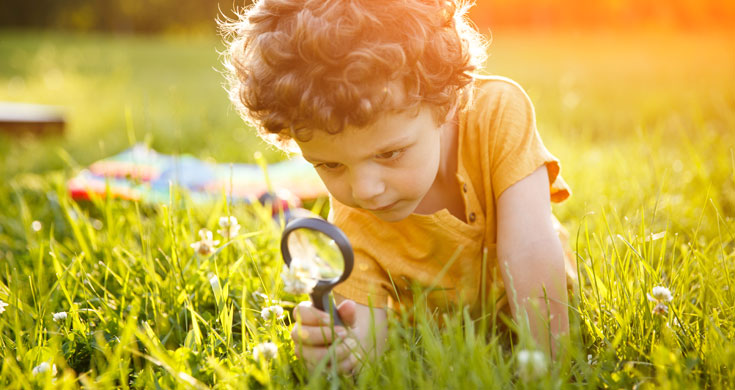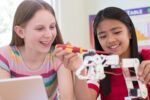Science has led to the discovery of everything from gravity to medicine. Science is based on curiosity—and when children aim to learn more about the world around them, it is science that often holds the clues they need for a better understanding.
Why Science Matters in Daily Life
Science, directly and indirectly, influences all aspects of everyday life. From the food we eat to the way we get around, science is everywhere. Once you begin to see all the opportunities to learn, the relationship between science and critical-thinking skills become apparent.
Beginning when children are very young, science helps shape their development. As they learn to ask questions, make predictions, observe, test, and then communicate their findings, they are developing critical science skills.
Kids should learn science because:
- Science helps children develop key life skills, including an ability to communicate, remain organized and focused, and even form their own opinions based on observation. Science also helps children develop their senses and overall awareness.
- Children are hands-on learners, and the world around them provides so many natural opportunities. That is why you should never underestimate the power of learning through play. Interacting with their environment will support their intellectual development.
- Children are primed for learning, and what they learn while they’re young can impact their interests later in life. Studies have shown that students begin to develop an interest in science, technology, engineering, and mathematics (STEM) during the elementary years. Having an interest and knowledge in these subject areas provides future career opportunities.
Parents Want to Help Their Children Learn Science
A recent study, conducted by the Education Development Center and SRI International, found that while 9 out of 10 parents help their young children complete learning activities daily, only around half say that these activities are science-based.
Although parents are eager to teach their children science-related topics, many admit that they lack the tools and confidence to do so. Unfortunately, this is a missed opportunity—and for the most part, the concept of “science” is being overthought.
Science can be simple, and it can be fun. Whether you head out into the backyard to observe a colony of ants or watch a storm roll in, these everyday scenarios are learning opportunities parents can take advantage of.
Tips to Help Children Learn Science
- Explore, explore, explore! Science is everywhere, which is why a visit to the park or an afternoon in the yard provide so many opportunities to learn. Always encourage your child to question their surroundings, and then discuss. If there is something you’re unsure of, research and learn the answer together. You don’t need to know all the answers—in fact, as a parent, it is beneficial when YOU ask questions and model curiosity as well.
- Remember, science is cumulative. This means that children will build knowledge from what they already know. Start celebrating science in your home as early as possible, discuss science-based topics daily, and make it fun! Whether that means you head out for a special family constellation night or bake a cake, these are everyday opportunities that allow you to discuss science.
- Always consider your child’s individual personality, interests, and social habits. This will allow you to come up with engaging activities that make them feel excited yet comfortable. Also, be mindful of what your child wants to do, as this will heighten their ability to learn.
- Invest in a few pieces of equipment if your child is interested in learning more. An inexpensive microscope, for instance, could turn a trip to your local pond into an afternoon of wonder and learning. There are so many fun toys that will also get kids involved, including ant farms, astronomy kits, and kitchen science experiments, so have fun with science!
In addition to exploring and communicating as a family, it is important to invest in your child’s willingness to learn. There are many programs available that are fun and interactive, helping them build a solid foundation in science.
From life sciences to environmental science, physical science to earth science, when children express interests in these subjects, encourage them and learn with them. After all, author, Mahtab Narsimhan, said it best, “A good education is the greatest gift you can give yourself or anyone else.”






















































































































